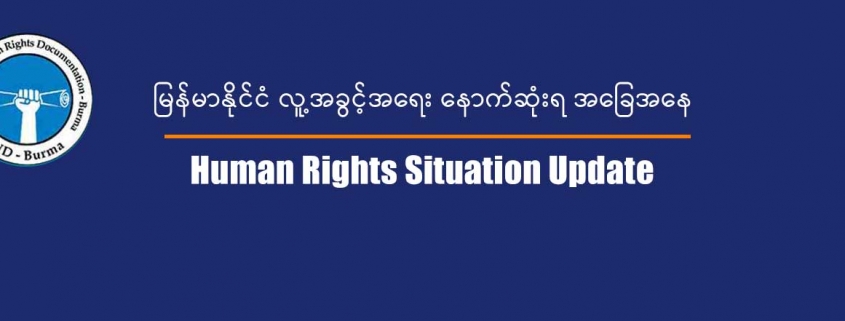Weekly Update on the Situation of Human Rights in Myanmar Post-Coup (August 9-15)2021
Choosing the truth over terror, five youth jumped to their deaths from an apartment building in Yangon while fleeing a chase by the Myanmar junta security forces. The junta has cremated the bodies of those who died – despite this going against the wishes of family members. Families were also reportedly not allowed to take their loved ones’ ashes. This heartbreaking incident devastated proponents of democracy and peace in Myanmar as uplifting drawings and various art forms commemorated their passing. The incident spoke volumes to the type of legacy the junta is leaving impressioned upon the younger generations who are willing to do anything for their freedom. May they rest in power.
The United Nations Special Envoy, Christine Schraner Burgener, expressed further concern for the situation in Myanmar, especially amid rising COVID-19 cases stating: “is still very worrisome.” Her concerns are rooted in Min Aung Hlaing’s declaration of a ‘caretaker government’ and concerted attempts to completely dismantle the National League for Democracy. Adding another layer of concern is the appointment by ASEAN’s decision to appoint Brunei’s Foreign Affairs Minister II Erywan Yusof as its special envoy to Myanmar. Civil society has expressed disdain and rejection of this appointment, which is rooted in the fact that ASEAN has failed to do any meaningful dialogue with the National Unity Government. Growing sentiment and distrust of Erywan Yusof has only intensified following news of Brunei’s business ties with the junta.
However, the resistance and growing momentum of the people in Myanmar has not been silenced. Even in the prisons where the junta thinks they have silenced dissidents, their voices are being heard. On the anniversary of the 1988 democracy uprisings, nationwide protests reinforced calls for democracy. In Mandalay’s Obo Prison, prisoners in block three who include mainly young people and students, began chanting pro-democracy cheers. The junta responded with more violence as several were reportedly beaten.
Clashes in ethnic areas are increasing risks faced by the most vulnerable, where for example, according to the Karen Peace Support Network, there are at least 70,000 IDPs in Karen State taking shelter and are afraid to return home. UN figures put displacement at over 200 000 since the military coup.



